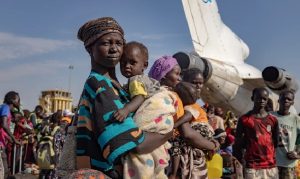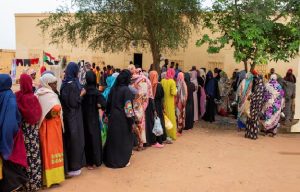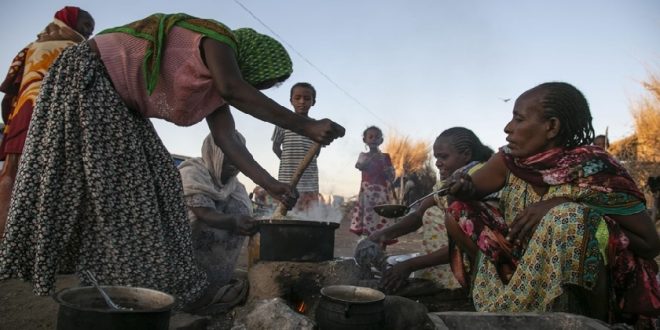10-10-2024
KHARTOUM/ UNITED NATIONS: The war in Sudan could cost countless more lives if immediate action is not taken, as famine and disease spread while fighting intensifies and aid workers struggle to gain access, a senior World Health Organization official said on Tuesday.
 Nearly 18 months have caused the world’s biggest internal displacement crisis and more than 25 million people over half the population of Sudan are in desperate need of food and healthcare.
Nearly 18 months have caused the world’s biggest internal displacement crisis and more than 25 million people over half the population of Sudan are in desperate need of food and healthcare.
“Malnourished children and mothers are dying due to lack of access to care, and cholera is spreading in many parts of the country. Aid workers face immense challenges,” WHO regional director Hanan Balkhy told a briefing in Cairo.
“Without immediate intervention, famine and disease will claim countless more lives.”
Estimates of the number of deaths run into tens of thousands but are highly uncertain, with control of the country split between the army and the rival Rapid Support Forces (RSF) and health facilities crippled.
In the capital, Khartoum, 75% of health facilities are out of operation while the situation in the west and south of the country is worse, according to the WHO.
More than 20,000 cholera cases have been recorded this year in half of Sudan’s 18 states, an outbreak spreading faster than another one in 2023, said Richard Brennan, a WHO regional emergency director.
An oral vaccination campaign is due to start this week following the arrival of 1.4 million doses, with another 2.2 million doses expected later, he said.
The war between the factions began in mid-April 2023 after their rivalry burst into the open over internationally-backed plans for a transition towards civilian rule.
Tensions had been building for months before fighting between Sudan’s army and the paramilitary Rapid Support Forces (RSF) erupted in the capital Khartoum on April 15, 2023.
 The army and RSF had been in a fragile partnership after staging a coup in October 2021, which derailed a transition from the rule of Islamist autocrat Omar al-Bashir. Bashir was ousted in 2019.
The army and RSF had been in a fragile partnership after staging a coup in October 2021, which derailed a transition from the rule of Islamist autocrat Omar al-Bashir. Bashir was ousted in 2019.
The two sides clashed over an internationally backed plan that would have launched a new transition with civilian parties and required the army and the RSF to cede powers.
Specific points of dispute were the timetable for the RSF to be integrated into the regular armed forces, the chain of command between the army and RSF leaders, and the question of civilian oversight.
The warring parties had also been in competition over sprawling business interests, which they were seeking to protect.
Protagonists in the power struggle are General Abdel Fattah al-Burhan, head of the army and leader of Sudan’s ruling council since 2019, and his former deputy on the council, RSF leader General Mohamed Hamdan Dagalo, known as Hemedti.
Hemedti, who grew wealthy through gold mining and other ventures, leads the RSF. Members of his family and clan play prominent roles and the force’s power base is the western region of Darfur, where the RSF emerged from militias fighting alongside government troops to crush rebels in a brutal war that escalated after 2003.
Analysts say Burhan’s position is less assured at the head of the army, where Islamist-leaning Bashir loyalists and veterans have gained sway since the 2021 coup.
The RSF says it is fighting to rid Sudan of remnants of Bashir’s regime, while the army says it is trying to protect the state against “criminal” rebels. (Int’l News Desk)
 Pressmediaofindia
Pressmediaofindia




